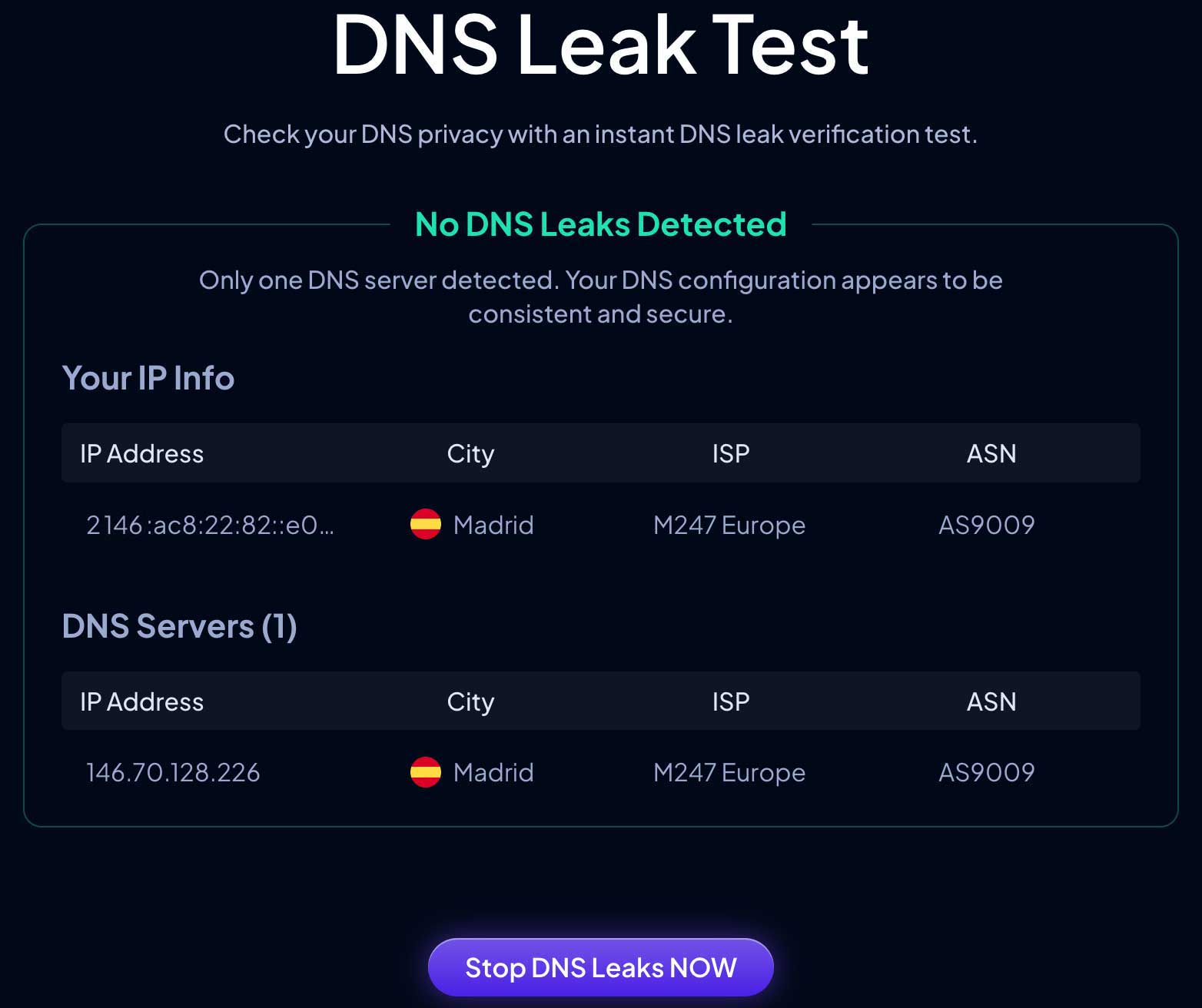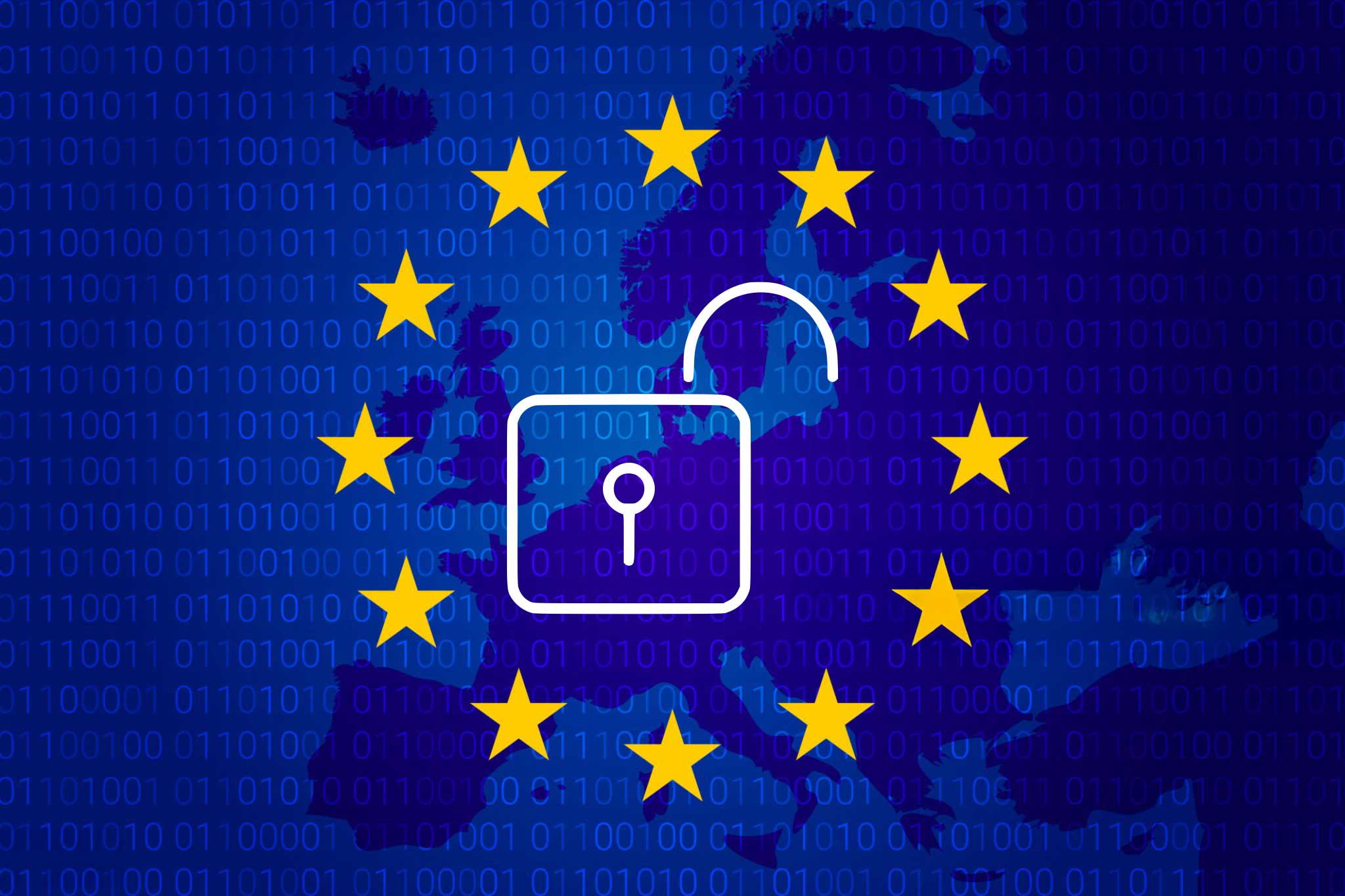Offizielle GrapheneOS-Verkaufsspende
Wir spenden 10 € von jeder GrapheneOS-Installation, die wir durchführen
Wir nutzen und empfehlen GrapheneOS seit 2020 Wir betreiben ein IT-Unternehmen, das Online-Dienste für Kunden weltweit anbietet
Offizielle GrapheneOS-Verkaufsspende
Offizielle GrapheneOS-Verkaufsspende
Many people are unknowingly sharing their data. In this post, I’ll show you how to check if you’re one of them and how to fix it quickly.
Your browser needs to find the right website every time you type an address. That’s the role of DNS servers.
The issue?
➔ By default, you use your internet provider’s DNS
➔ These DNS servers keep records of your searches, habits, and activities
Even if you use a VPN or clear your history, the information is still stored. It can be sold or used against you.
What’s the problem?
➔ Your DNS requests go outside the secure tunnel
➔ Your ISP can monitor the websites you visit
➔ Your “anonymity” is lost quickly
✓ Many believe VPN = safety
But if your DNS isn’t secure, you are at risk.
But you’re using 1.1.1.1, 8.8.8.8, or your ISP’s DNS. That means even if your traffic is encrypted, the sites you visit might still leak outside the tunnel. This isn’t just a small mistake, it’s one of the most common privacy failures.

But if your VPN doesn’t have its own DNS, or if your setup is wrong, your DNS queries might leak. What does this mean? You believe you’re safe, but your requests could be handled by Google or your provider. Many think a VPN hides everything, but DNS leaks can occur. Ensure your VPN has its own secure DNS to avoid revealing more than you think. You can use tools like:
www.controld.com/tools/dns-leak-test
They can help check if your DNS requests are leaking outside your VPN.
Popular VPNs like Mullvad and iVPN offer built-in protection against DNS, IPv6, and WebRTC leaks, but this only works if they are updated and set up correctly.
⚠️ Caution: Some apps use fixed DNS servers, which can ignore your VPN settings and expose your data. This is known as “DNS hardcoding.”
To stay protected, use privacy-focused public DNS like Quad9 (blocks malware) or AdGuard DNS (blocks ads, trackers, and harmful sites; supports secure DNS methods: DoH, DoT, DNSCrypt).
On Android, apps like RethinkDNS and NetGuard allow you to control how apps resolve domain names, keeping you safe even if an app tries to bypass your VPN.
Organisations like the 14 Eyes countries use this information for broad surveillance. That’s why using tools like Tor or multi-hop VPNs is important to make it harder to track you. Want to really protect your privacy? Just encrypting isn’t enough; you also need to hide your metadata.
Read also: Organisationen wie die 14 Eyes sammeln Ihre Metadaten und geben sie zur Massenüberwachung weiter
Now that you understand the importance of protecting your data, here are some simple tools and habits I use to reduce risks:
Privacy is an ongoing journey, not a final goal.
✓ Gerät privat gekauft
✓ DeGoogled das Gerät mit einem sicheren Android-basierten Betriebssystem
✓ Die Installation des Betriebssystems und die Einrichtung der Anwendungen erfolgt über eine sichere, verschlüsselte Verbindung, die wöchentlich auf Lecks überprüft wird.
✓ Nutzt vertrauenswürdige Apps wie Threema, Silent Circle und Premium-VPNs wie iVPN, Mullvad und ProtonVPN, die sicher gekauft wurden
✓ Virtuelle Nummern für Boten auf Anfrage verfügbar
✓ Es werden keine Geräte oder App-Konten in unserer Datenbank gespeichert.
✓ Entfernen von unnötigen App-Berechtigungen
✓ Es werden nur autorisierte Apps verwendet, bei denen die Privatsphäre im Vordergrund steht.
✓ Versand weltweit möglich, mit Abholung in der Nähe
✓ Zahlungen können per Banküberweisung oder Kryptowährung erfolgen. Stellen Sie sicher, dass Ihr Portemonnaie privat ist, oder suchen Sie einen lokalen Krypto-Händler auf.
Lesen Sie mehr über Cryptvice Unternehmen und Team hier.
Lesen Sie mehr über unsere maßgeschneiderten Geräte hier.
Wir nutzen und empfehlen GrapheneOS seit 2020 Wir betreiben ein IT-Unternehmen, das Online-Dienste für Kunden weltweit anbietet

Von der Chat-Kontrolle zur totalen Kontrolle Die EU ist nicht mehr nur an Ihren Nachrichten interessiert; sie möchte Zugang zu
Verbinden wir uns